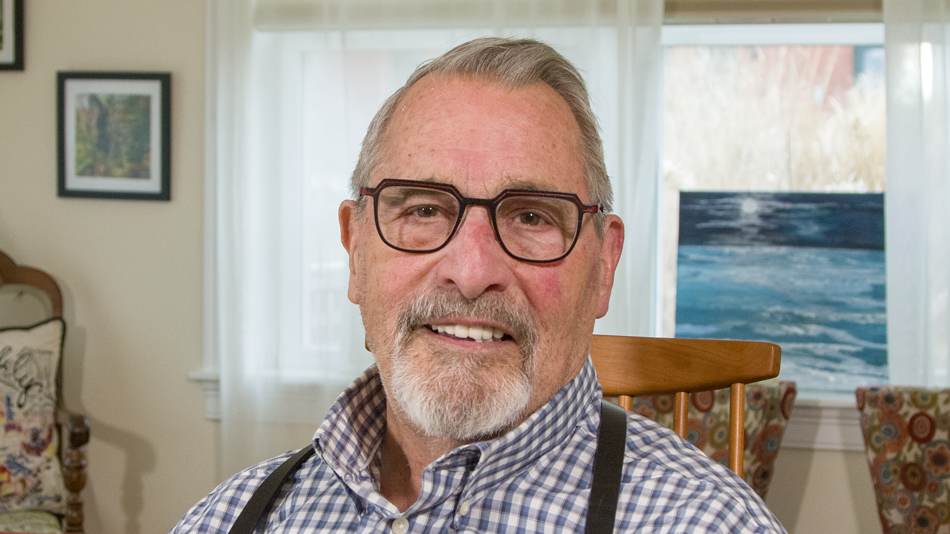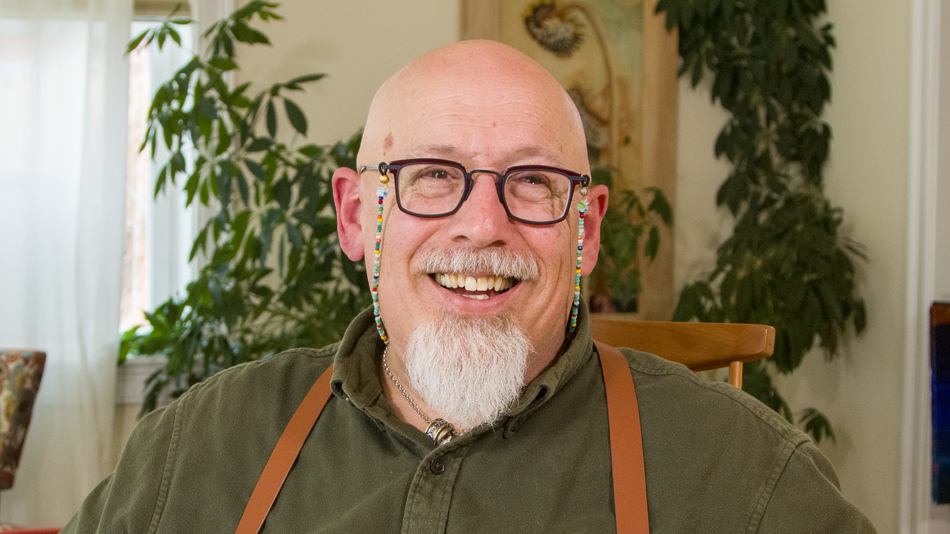My name is Tyrone Smith, I’m originally from Kinston, North Carolina but I’ve lived here in Philadelphia for most of my adult life. And I’m an openly, affirming African American gay man, who happens to be 70 years old in the year 2012. Now ain’t that fierce?
One of the things I want to share with you today is some of the history of Black gay men here in Philadelphia. On this calendar there were a group of men who were a part of a movement which was called Unity Incorporated which was the first group to deal with AIDS and HIV for Black gay men in the city of Philadelphia. But as I look at this picture that we took on top of a rooftop, so many of these brothers are not here. All of these young men made a contribution: Arnold Jackson, Bill Jackson, all of these boys, and Kenneth they all made a great contribution of giving their lives but out of that forged what we have now as the Black Gay men’s leadership counsel. People in the rooms where differences are being made, openly affirming their gayness. Prior to this, this epidemic, that was not happening. So I think that if there’s anything good that’s come about, it’s the fact that we were able to come together, organize and move forward to where we are now in the year 2012.
Kenny Bullock was a young man who was a bartender here in Philadelphia. I was working at Keebler Baking Company so when I got off from work at night, I’d come into the bar having warm, hot pecan sandy cookies. You hold them up, you’d give them to him, and they’d take some money off of your drink. So it was a way that way we became buddies. The differences in our age, at that time I was in my late 40s, of course he was much younger. But I’ve always tried to have a relationship with younger people in a productive way.
So when Kenny became ill, he called me and let me know, you know, that this was what was going on with him. He called and he said to me, “Ms. Tyrone, what you doing?” I said, “Honey I’m just laying around the house.” He said, “Can you come down to the hospital?” I said, “Something you want?” He said, “yes” he wanted a cheese steak with seeded peppers, mayonnaise, and relish. And I went and got it for him. Never knowing that from the time I left my house to get to him he would have gotten a diagnosis of being, at that time it wasn’t HIV positive, he had AIDS. And so, you know in those days, young people got AIDS and they died.
I’ll never forget the fact that he didn’t want to be alone. And I figured you know for me to say, ok Kenny, don’t worry about it, I’ll be here for you. But the thing is, I thank God I was able to be there for him and his family. The first fundraiser that the Black gay community really did as a collective was for this kid. I mean that’s how popular he was. And we didn’t have money but we did it on food stamps. People who had food stamps would go get, you know, go give us the food stamps and we would do the shopping. So that we could have a fundraiser to help support him. Because at that time, it took a long time before people got on SSDI, which is now disability.
But this particular picture, not only is it very moving for me, but it’s a very historical moment. Because in this picture, him in my arms, was at a candlelight vigil. This was the night that Rashida Hassan, the woman who started Bebashi, which is one of the first AIDS organizations for African Americans across the board here in Philadelphia, and possibly one of the first ones in the country. Rashida, a Muslim woman, started this organization that evening. It gave her the strength and courage to do it. Because we had been dealing with organizations at that time for basically white gay men in Center City. And we had been working with them because they had a task force that was dealing with the issue of AIDS and HIV. And by this time we started to realize that AIDS was not just a white, gay men’s disease, it was a people’s disease. And it was affecting our community. So from that, we began to put systems in place for us such as Unity Incorporated, such as Bebashi. And the next morning after this candlelight vigil, this particular picture was on the cover of the Philadelphia Daily News.
So for me, remembering and looking back over that, it’s very moving for me. This young man transformed my life, and I mean that in a very positive way. I really was never an activist, I was a flaming sissy, but I wasn’t an activist. I mean, issues, unless they affected me I didn’t give a damn. But because of me interacting with him, seeing the struggles in others that they had to go through has made me the activist that I am today. So I’m very grateful for that interaction.








Share